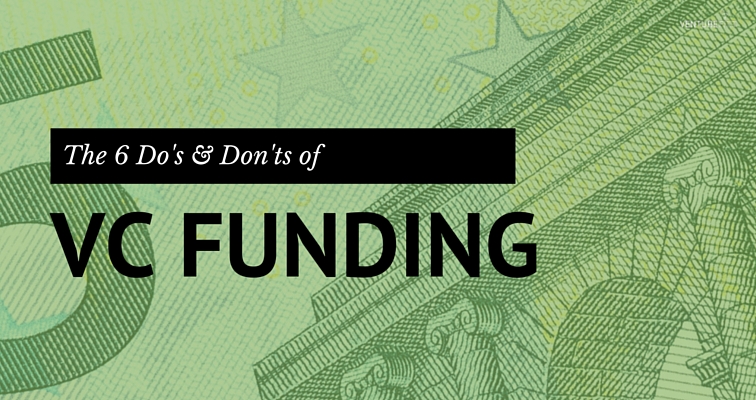At some point, almost everyone wants to start a business (99 percent of San Franciscans do). But remember, as the late, great film star Rex Harrison once said, "Exhilaration is that feeling you get just after a great idea hits you, and just before you realize what's wrong with it.”
When it comes to startups, realizing what’s wrong means figuring out how the hell you’re going to make your big idea happen.
If you’ve decided to venture into VC funding as part of that process, here are the big do’s and don’ts to make sure you get what you came for.
DO: VET YOUR IDEA FOR FUNDABILITY
A solid $20M per year business with 20 percent margins is great for an entrepreneur, but terrible for a VC.
VC funds are not built for this type of return. They would rather push the business toward (or even off) the metaphorical cliff in hopes of reaching $200M in revenue over seeing you survive safely as “the living dead.”
This isn’t because they are mean. It’s just the nature of venture investing and the way these funds are designed. They have a job to do, and earning competitive returns requires them to consistently hit home runs.
You need an idea that has the potential to be a billion dollar business. And unfortunately, not every idea has that potential.
DO: ENSURE YOU’RE READY FOR VENTURE FUNDING
Venture capital today should really remove the word “venture”.
Most venture capitalists want to invest in businesses that are already up and running with some sort of traction (be it users, revenue, profits, or all three), with much of the risk from the old Apple and Intel days removed.
You’ll need to have gotten somewhere on your own first and have something to show for your big idea. Not to mention, raising funds takes time.
DO: BUILD ONGOING RELATIONSHIPS
Others might caution against it, but I believe that there’s nothing wrong with starting to build relationships as early as possible.
It can be smart to go in early — knowing you’re early — just to meet with potential investors to tell them what you plan to do. The key is that you come back nine months later and prove that you did it before asking for money.
Investing, much like life, is very relationship-driven. If you don’t have relationships with VCs in place, you need to build them — and that won't occur overnight.
DON’T: ASK FOR AN NDA
Whether you’ve heard this a thousand times before or not, never ask an angel or VC to sign an NDA just to hear your idea. No VC will do it, and all it does is make you look green and inexperienced.
In reality, your idea is not special. Get over it. Ideas are a dime a dozen. The value lies in actually having the skill and hustle to make your idea happen.
Whenever a new entrepreneur asks me about NDAs, I always tell them to take their business plan, make copies, and go around and drop it in every coffee shop they see. They could even stand and give presentations on the street corner and it wouldn’t matter.
You, and only you, are the one who has decided to devote your entire life to this idea in the hopes that it will work.
DON’T: THINK THAT ANY INVESTOR IS A GOOD INVESTOR
Just getting an investment does not make you successful, prove you’re smart, or mean you’ve earned a place in the club.
Let’s face it, most venture investors have likely been providing worse returns than the market for decades. There are usually only a handful of great ones who can really make a difference in your business from start to finish.
Make sure to do your homework, talk to past investments, current portfolio companies, and perform your due diligence. Which isn’t to say you don’t take the investment in the end. But at least you’ll go in with a clear view of who you’re getting in bed with.
DON’T: PAY ANYONE TO RAISE MONEY FOR YOU
It’s never a good idea to pay someone to raise money for you — or even close the deal.
Good investors won’t want to see their money going toward someone brought in just to work a deal. In fact, almost every single investor document I’ve signed has a “no success/finder’s fee” clause in it.
Spending money on something like this will do nothing to move your business forward, and a startup that’s raising funds likely needs every single penny it can keep.
There you have it: the six best do’s and don’ts of VC funding for your big idea. Put these into practice if you’re headed toward the funding stage and be sure to let me know how it goes!
Carlos Cashman is CEO/Managing Partner of OrionCKB. Follow OrionCKB on Twitter: @OrionCKB.


